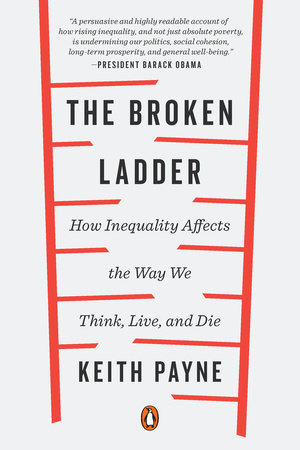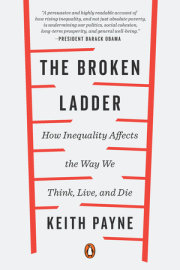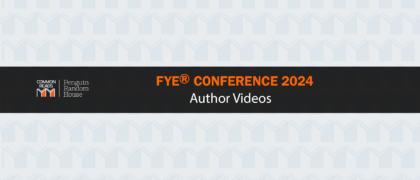Chapter 1
Lunch Lady Economics
Why Feeling Poor Hurts Like Being Poor
I learned I was poor on the new lunch lady's first day at work. Before that, my school had had the same cashier for as long as my fourth-grade mind could remember. I knew that some kids paid when they got to the register and others, like me, didn't. But the old lunch lady passed us through the line, money or not, as smoothly as our plastic trays glided over the rail. Then one day she was gone, replaced by a younger woman who seemed to be trying hard. As I carried my food past her, she stopped me and asked for $1.25. I felt off balance, the way you do when an elevator stops too quickly. I started stammering, the only thing I could do, since I had not a cent. I would gladly have given her any amount of cash at that moment simply to escape. At that point, an older woman, tall and skinny in a pink polo shirt, like a flamingo with a hairnet, leaned over and whispered in her ear, and I was waved through. Eventually, the lunch line returned to its silent procession. But a hard week passed before the new cashier learned who paid what.
The moment when I realized what my free lunches meant is still with me, and I can feel the heat in my face as I recount it. Though my family had no less money than the day before, that moment changed everything for me. I began to notice differences between myself and my classmates. Despite the fact that we all wore the same school uniform, the kids who paid for their lunches seemed to dress better. Was it the shoes? They even had better hair. Did they go to a salon instead of having it cut with a bowl and a pair of scissors at home? We had all grown up within a dozen miles of one another, but the free-lunch kids had our parents' Southern drawls. The lunch-money kids had the generic voices of newscasters, from everywhere and nowhere at once.
Always a shy kid, I became almost completely silent at school. Who was I to speak? Suddenly a new social ladder stretched out before me, above me. Its rungs were marked with shoes and hair and accents, telegraphing a code I was just learning to decipher. It did not matter that nothing in my circumstances had changed but my perspective. Now I was, in fact, poor.
If you are used to thinking about wealth and poverty purely in financial terms, the way an accountant would, my response makes no sense. My insight did not change my parents' income. It did not change our monthly expenses. It changed nothing in the world, except for me. But by redirecting my attention and altering my perceptions, my thoughts, and my actions, it changed my future.
To understand how we think about status, take a look at the image of the ladder on the next page. Imagine that the people at the top of this ladder are the best off. They have the most money, the best education, and the highest-paying jobs. The people at the bottom are the worst off. They have the least money, the lowest levels of education, and the most menial jobs, if they have jobs at all. If you were to assess your own economic position with respect to that of other people, which of the ten rungs would you place yourself on?
This simple image is one of the most widely used measures of subjective social status. Let's call it the Status Ladder. We should be able to perfectly predict where a person would place himself on the ladder if we knew his income, level of education, and the prestige of his job.
Except we can't-and we can't even come close to doing so. It is true that, on average, people with higher incomes, more education, and more prestigious jobs do rate themselves higher on the ladder. But the effect is relatively small. In a sample of, say, a thousand people, some will rate themselves at the top, others will rate themselves at the bottom, and many will be in between. But only about 20 percent of their self-evaluation is based on income, education, and job status.
This surprisingly small relationship between traditional markers of status and how it is perceived subjectively means that there are a lot of people who are by objective standards affluent and yet rate themselves on the lower rungs. Similarly, many people who are objectively poor rate themselves high up the ladder.
A standard economic analysis would argue that people's own conceptions of themselves are effectively airy nothings, mere noises that flit around like the sound of static between radio stations. If subjective perceptions do not align with objectively measurable quantities like money, then so much the worse for those perceptions. Certainly, money
is part of the story, but it's not the whole story, and not even the main character.
We have to take subjective perceptions of status seriously, because they reveal so much about people's fates. If you place yourself on a lower rung, then you are more likely in the coming years to suffer from depression, anxiety, and chronic pain. The lower the rung you select, the more probable it is that you will make bad decisions and underperform at work. The lower the rung you select, the more likely you are to believe in the supernatural and in conspiracy theories. The lower the rung you select, the more prone you are to weight issues, diabetes, and heart problems. The lower the rung you select, the fewer years you have left to live.
Let me be clear that I am not simply asserting that, if you are poor, then all of these things are more likely to happen to you. I am stating, rather, that these things are more likely to happen to you if you
feel poor, regardless of your actual income. Of course, one reason people might feel poor is that they are actually poor. But as we have seen, that's just 20 percent of the story. For the rest of it, we have to look at ordinary middle-class people and ask why it is that, regardless of actual money, so many of them feel that they are barely getting by, that they are living paycheck to paycheck, that the neighbors know something they don't, and that if they could just earn a little more, then everything would be a little bit better. To understand the Status Ladder, we have to look beyond bank accounts and start looking at people.
All of us are aware of how much money we make, but very few of us know whether we make enough. That's because the only way we determine how much is actually "enough" is by comparing ourselves to other people. We make comparisons to other people so habitually that we rarely even notice that we are doing so. When a neighbor pulls up in a new car, we don't typically say to ourselves, "They have an Audi, so I need one, too." We are more sophisticated and mature than that. We might tell ourselves that our neighbor's good fortune is none of our business, or that she deserves the new car because of her hard work. If we do have an immediate impulse to keep pace with her, we might banish the thought as soon as it appears. And yet, the next time we get in our own car, we notice just a little more than yesterday how worn the seat is getting. Social comparison is inevitable.
It is hard to recognize such comparisons at work in our own lives, because they take place in the background, and we are experiencing the foreground. When the noise in a restaurant gets louder, for example, we begin to feel that our dinner partner is speaking quietly, because our attention is on our partner's face, not the surrounding room.
While we feel rich or poor based on the comparisons we make, the fact that social comparisons always take place in the background causes certain blind spots. Think for a minute about what matters most to you. What are the values that make you who you are? What are the motives that drive you? I have asked hundreds of people these questions over the years, and the usual responses include such ideals as love, faith, loyalty, honesty, and integrity. Although there is some variety in the answers, the whole list could be written on a business card. They are similar for men and for women, for Northerners and for Southerners, for Democrats and for Republicans. And yet, no one ever mentions something that we know to be true, both from scientific studies and from simply being human: "I crave status."
Others might not acknowledge that, but we can certainly see it in their behavior. We can observe it in the clothes they buy, in the houses they choose to live in, and in the gifts they give. Above all we can perceive it in the constantly shifting standards for what counts as "enough." If you have ever received a raise, only to adapt to the new level of income in a few months and again begin to feel as though you were still living paycheck to paycheck as before, then you can experience it in yourself. As your accomplishments rise, so do your comparison standards. Unlike the rigid columns of numbers that make up a bank ledger, status is always a moving target, because it is defined by ongoing comparisons to others.
We make social comparisons to all sorts of people on every type of occasion, yet we mysteriously manage to find ourselves on the top half of the Status Ladder again and again. We find it most comfortable to reside there. Consider for a minute how accomplished you are at your job. How intelligent are you? How moral? How loyal a friend? Are you a good driver? Deep down, you know that you are better than the average person in all these respects. In fact, the majority of people know deep down that they are better than average at most things. Which, as far as anyone can tell, is not strictly possible.
This finding is called the Lake Wobegon effect, after Garrison Keillor's fictional town "where all the women are strong, all the men are good-looking, and all the children are above average." The effect was stumbled upon in a 1965 study of accident survivors. Researchers spent six months interviewing all of the patients admitted to a Seattle hospital for injuries sustained in vehicle accidents. They compared the patients to a group of control participants who were matched on age, sex, race, and education. One of the interview questions asked the patients to rate their driving ability. Although it was not originally the main point of the study, that question is the reason that the study is remembered today, because the hospitalized patients rated themselves as better-than-average drivers. In fact, their ratings were just as high as those of the control group, who had not been in auto accidents. Clearly, these patients were not going to let the mere fact of being hospitalized after a car accident affect their self-image as good drivers.
Was it possible that the accidents were not, in fact, the patients' fault? For each case researchers examined police records to determine who was actually responsible and who was a blameless victim. After identifying those drivers who did cause the respective accidents, it was clear that their ratings were just as inflated as everyone else's.
Another early example of the effect was discovered in a massive survey by the College Board, which produces the SAT college entry exams. About a million students who took the SAT in a given year were asked to rate themselves compared with the median student (the median being the point at which half are better and half are worse). The ratings were not only about SAT performance, but also on personal characteristics like leadership and getting along with others. Seventy percent rated themselves as being above the median in leadership ability, and 85 percent rated themselves above the median in getting along well with others.
In another study, psychologist Constantine Sedikides and colleagues asked a group of volunteers to rate how good a person they were on several dimensions. The volunteers considered themselves to be more moral, kinder, more dependable, more trustworthy, and more honest than the average person-an unsurprising result, except that these volunteers were recruited by visiting a prison and enrolling convicted felons. The only category in which they did not consider themselves above average was "law abiding." Here, they rated themselves as average. Considering that they were behind bars at the time they made that judgment, it seems to lack a certain objectivity.
Over the years, hundreds of studies have replicated the Lake Wobegon effect. The studies show that most of us believe we are above average in intelligence, persistence, conscientiousness, badminton, and just about any other positive quality. The more we value the trait, the more we overrate ourselves with respect to it. My favorite study in this genre is one in which my fellow college professors were asked to rate their teaching abilities compared with those of their colleagues. A stunning 94 percent said they were better than average. One variant of this tendency is really the mother of all biases: Most people rate themselves as more objective and less biased than the average person.
Of course, pushing ourselves up the ladder in our own minds is not the only way we make the most of our social comparisons. Sometimes we pull other people down. I was recently standing in a supermarket checkout line and learned that Kim Kardashian was getting fat, Dolly Parton was wasting away, and Miley Cyrus was misusing her talent. Some housewives also seemed to be arguing with one another. Why is it that celebrity "news" showers us like confetti, but we never see headlines about Dale, the local HVAC repairman and his on-again, off-again relationship to Brenda, the home health care nurse?
The answer, of course, is that we are fascinated by high status. Since Aristotle, people of elevated status have served as the heroes in our dramas, because only someone who starts high up can fall from grace. In daily life, as in art, our eyes track the lives of the rich and famous and look right past the ordinary slouches to our left and right.
Why do we care so much about status? This is the point in most books where the argument is made that human beings are unique among the animal kingdom, but in this case the craving for status does not set us apart. In fact, it is such an ancient part of our nature that we share it with our primate cousins. Watching baboons or chimpanzees compete openly, physically, and sometimes violently for their position in the hierarchy feels simultaneously foreign and familiar to us. It's as uncomfortable as watching them mate: We feel embarrassed by their vulgarity and yet we recognize exactly what is driving them.
Copyright © 2017 by Keith Payne. All rights reserved. No part of this excerpt may be reproduced or reprinted without permission in writing from the publisher.





